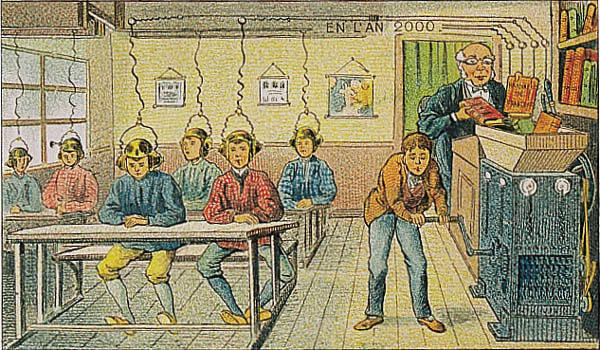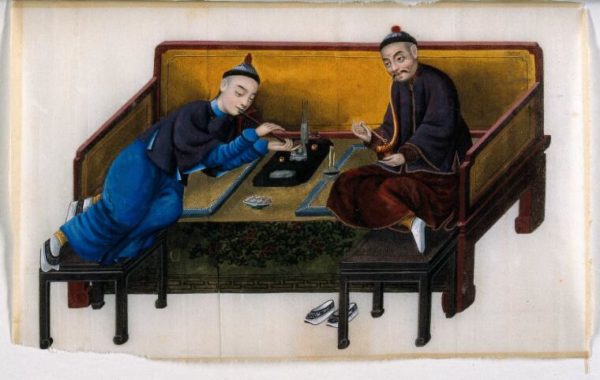1. Artificial wombs to the rescue, or so I believe
I recently became persuaded in favour of the idea of artificial wombs. I had the same instinct as most people – that it’s an abomination against god and nature – until I remembered that I don’t believe in god, and nature is just a consensus position that is continually re-defined. I decided to read some more, and found the article “Womb for improvement” by Aria Babu, which recounts the cost in suffering that women pay for birth, and finishes with the line, “I hope in my lifetime to see the first human being created without pain.” I changed my mind.
(This debate was triggered by some fairly standard tech bro pontification, from the class of pundit whose shtick is to throw two or three ingredients together at random – in this case “artificial” and “womb”, but it could just as easily have been “blockchain” and “dildo”, or “assassination” and “market”. They then pull it out of the oven before it’s fully cooked, pretend that it’s a finished meal, and then they sit back and wait. If somebody swallows the idea, they can pretend to be spectacular oracles; if not, nobody remembers.)
Noah Smith took this pontification in a different direction, with a mixture of the obvious (“what technology does [is] by increasing human capabilities, it changes the fundamental shape of human life”), through the obviously delusional (“Artificial wombs are simply a way to take a privilege for the upper class, and make it possible for other classes of society to enjoy it as well”), to the final destination: the Weird Future, not so much a destination as it is a process:
what it means to live a human life — at least in a technologically advanced country — has fundamentally and radically changed over the years. The lives of 1980 would seem as bizarre to someone who grew up with social media and cell phones and the lives of 1900 would seem to someone who grew up with cars, television, and electric appliances… Just to drive this point home, I thought I’d make a list of some human experiences that were very basic and normal — almost universal — in 1980, but which are now so rare as to be almost unimaginable for much of the population.
He presents these lost experiences without judgement – which is one way to do it! – and concludes “You barely realize how much life has changed until decades later you look back and can barely remember what it was like before the changes.” This is of course not true; plenty of people do remember, but nobody listens to them because they’re old and grumpy. So here “modern industrial innovative scientific society” is a demiurge, an almost supernatural force that drives “continuous processes of technological change”, and it is unclear how much control we have over those processes. In this reading, it seems to be very little.
I’ve written about how how I won’t be able to live in the future, and about how wants and needs don’t comfortably align, and how meaning in our lives is generated by friction, and this piece has elements of all of those. I obviously agree that “We can and should do our utmost to make sure that those changes create a better society…. instead of a dystopia,” but Smith offers a choice (lightly, but also seriously) between a future “more like Aldous Huxley’s or more like Lois McMaster Bujold’s”. This is a false binary, as you would expect from a piece that’s rhetorical rather than analytical (although it strikes me that a lot of people can no longer tell the difference), but I also don’t think it makes the point that Smith thinks it does.
2. Everything will shortly happen somewhere else
The experiences that Smith lists as rare to vanishing are: Getting lost, because GPS-enabled mobile phones make it impossible; Not knowing what things look like and Not being able to know basic facts, because search engines can deliver knowledge instantly; Forgetting what things looked like, because camera-carrying mobile phones make it possible to preserve everything; Losing touch with people, because ubiquitous communications makes it almost impossible; Enforced boredom and loneliness, because of the same ubiquitous communications; Not being able to get porn, because ditto; Being able to move and start a new life, because double ditto.
He also lists “Getting chicken pox” and “Not knowing what sex your baby was going to be”, but these seem categorically different to the other list items. They are medical breakthroughs leading to quantifiable improvements in quality of life, but they also seem to be sleight of hand – a pre-emptive defence to accuse any critic of this vision of progress of being against improving health and saving lives, perhaps. Meanwhile the other items are just spandrels of ubiquitous and persistent internet connectivity combined with accessible and sizeable storage; which is to say that they are aspects of the same thing, rather than separate things, and that thing is outsourcing human capability rather than merely increasing it.
I am not in principle opposed outsourcing capability, otherwise you wouldn’t be reading this – I would be declaiming it loudly from memory in the town square, to an audience of police officers whose patience was wearing thin – but what Smith is describing is a world in which this outsourcing is not optional, in which these decisions are made for us, and in which it is increasingly difficult if not impossible to decide differently. As he says regarding the difficulty of Being able to move and start a new life in the age of the internet, “that extreme option of escape is basically closed off” – but he may as well be describing all the points on this list, being closed off, one by one.
This is a world in which there are no corners in which the unknown or unexpected or unwanted can hide, a disenchanted world; as he says at one point, “This takes a significant amount of the mystery out of the world.” Smith claims that the future is only going to get weirder, but this seems like a roadmap to somewhere significantly less weird, if we take that word to mean unusual rather than unnatural. Outsourcing knowledge by default will disincentivise learning how to learn, which will make it harder and harder to think critically about the world we live in; and in this world where there will be less and less friction, there will be less meaning, because (as I’ve written before) friction is vital for meaning.
Getting lost; not knowing; forgetting; feeling bored, feeling lonely; these are not necessarily good things, particularly in excess, but they are important things. They create friction, and friction stimulates change, and change leads to growth. Brave New World is a dystopia partly because it is a story of an attempt to engineer friction out of society – and 1984 is a dystopia for similar reasons, even if the engineering approach is significantly different. Dystopias are static rather than dynamic, but if there was no friction, there would be no story, so friction must be introduced: the narrative engine is individual dissatisfaction with the dystopia, which is to say; somebody experiences friction and something changes as a result.
An Ever-Lengthening List of Things We Lost
I love advances in health care, and I’ve even been persuaded to love synthetic wombs (at least in principle), but when I look at this actual list of experiences that we can no longer have, I already see a dystopia, at least in embryonic form, a world missing many of the features that make meaning possible. I didn’t get to choose it, despite what Smith claims at the end of his piece. None of us did. This here is what techno-optimism cannot contend with, because it is not optimism at all; it is just acquiescence to the status quo, the extension of “there is no alternative” into the infinite future.
From that viewpoint, the obvious retort to my complaint is that it really doesn’t matter what I think, because when Smith writes “There’s no stopping this bus” the clear implication is “Your complaints about this bus are futile”. But isn’t that also an important part of the definition of a dystopia: that you cannot change it, that nobody can change it, that we are all simply victims? I thought the point – the whole point – of all of this progress was to provide us with more agency, not less? I’m not sure if there was ever a golden age of human agency, but it certainly doesn’t seem like the future is going to be such an age.
Another retort might be that lots of people are perfectly happy living the way we live now, with all these conveniences, to which my obvious response is: lots of people are perfectly happy in the dystopia of Brave New World, and that’s also one of the things that makes it a dystopia. And the heroes of these dystopian stories – to the extent that there are heroes – are the ones who make the same complaints that I do: that something is missing, that something has gone wrong, that we are all being taken for a ride which does not have a happy ending. There seems to be some kind of irony buried in there; unfortunately it’s not the funny kind.
Aldous Huxley wrote another book, Ends and Means, in which he said (in 1937), “It has become apparent that what triumphant science has done hitherto is to improve the means for achieving unimproved or actually deteriorated ends.” I wouldn’t fully agree with him; I think synthetic wombs would improve the means of diminishing the suffering of childbirth, which is a vastly improved end. Yet that doesn’t preclude the possibility that the Weird Future that we are already living in is in fact already a dystopia, at least to some of us. Noah Smith is right about one thing, though: the list of things we’ve lost will only get longer.


